Technology is essential to moving the needle on financial inclusion. Every year, the Global Technology Summit brings together leading thinkers from all over the world to discuss the impact of technology on everything from international relations to payments and financial inclusion.
Carnegie India and the Government of India Ministry of External Affairs hosted the event, which took place from November 29 to December 1, 2022. The time and place was highly relevant to our work with India’s long leadership on digital public infrastructure (DPI) and recent ascendancy to the G20 Presidency. The message from the Government of India was clear: that DPI would play a dominant role in its leadership objectives for the G20 (which we think is great news).
The week-long discussion was incredibly nuanced around such a specific topic, but the one incredible takeaway was the importance of sovereignty when it comes to DPIs. A nation cannot be reliant on another nation for critical infrastructure like identity and payments. India, with its long struggle for sovereignty, robust civil society and emergent role on the global stage is uniquely poised to lead us all down that path.
On the third day, I participated in a discussion called “Open-Network Technologies: a Driver of Financial Inclusion.” Within our payments context of DPI, the Unified Payment Interface (UPI), an instant payments system that brings all providers and citizens into the digital economy, has led to 70x growth in digital payments in two years. Most importantly, this has enabled many millions of micro merchants to accept digital payments by reducing the cost of acquisition and making transactions free. This in turn has created a track record for many underserved individuals seeking financial services like loans.
Watch the panel discussion on YouTube >
The panel also included:
- Priyadarshini D. (moderator), associate fellow with Carnegie India’s Technology and Society Program
- Siddharth Tiwari, former chief representative for Asia and the Pacific, Bank for International Settlements
- Kamya Chandra, practitioner economist, Digital Development
- Nanjira Sambuli, fellow, Technology and International Affairs Program, Carnegie Endowment for International Peace
- M. Geevarghese Vaidyan, senior advisor, financial inclusion, Tata Trusts and former deputy managing director of the State Bank of India
Insights from the Discussion
- India’s new digital public infrastructure has enabled the country to leapfrog traditional economic evolutionary processes. Thanks to verifiable identity, payment systems and other infrastructure, India has accomplished in seven to eight years what normally would have taken 46 or 47 years.
- The power of digital is to create ecosystems of people that are solving for inclusion at the last mile more effectively and are working as part of an open network rather than competing silos.
- Using open source technology, like Mojaloop, enables a country to go on its own journey to serve its unbanked citizens. This is only possible if there’s sovereignty over infrastructure. If a country is reliant on one particular vendor, this not only limits the ability to change but also the ability to bring costs down for hub operators, financial service providers, and end users. Only when costs are as low as possible can people at the last mile use a service.
With Mojaloop, nations can meet the specific needs of central banks, hub operators, financial institutions and their entire population, especially the underserved. In addition to directly benefitting from collaborating with the Mojaloop community to build and maintain payments infrastructure, nations and their systems integrators won’t be locked into relationships with proprietary vendors and bound by their business models and development priorities.
To learn more, watch the full discussion on YouTube and follow the Mojaloop Foundation on LinkedIn, Facebook and Twitter for the latest updates.
Blog by: Steven Haley, Director of Market Development and Partnerships, Mojaloop Foundation

